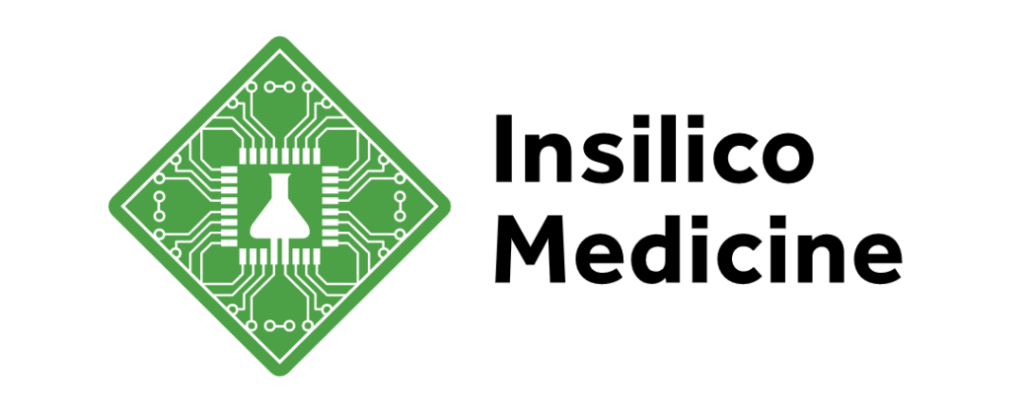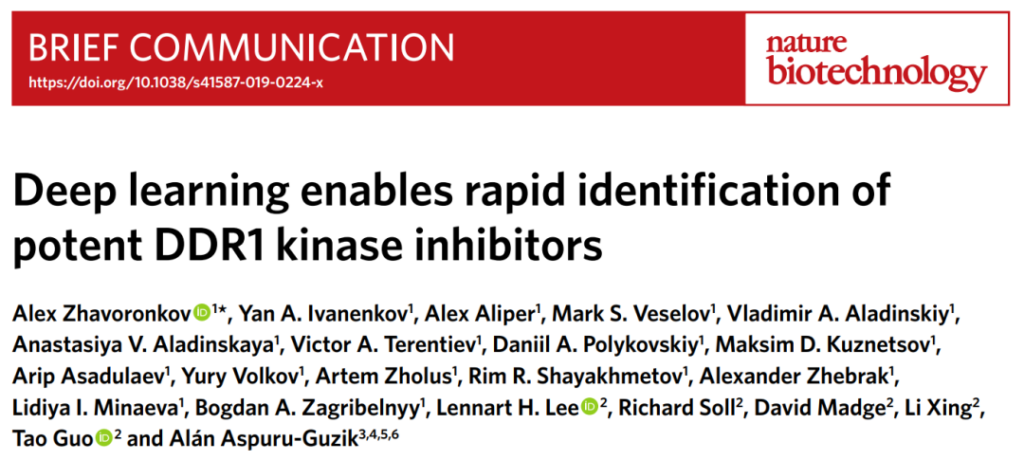AI successfully developed a new drug and advanced it to pre-clinical
- Normal Liver Cells Found to Promote Cancer Metastasis to the Liver
- Nearly 80% Complete Remission: Breakthrough in ADC Anti-Tumor Treatment
- Vaccination Against Common Diseases May Prevent Dementia!
- New Alzheimer’s Disease (AD) Diagnosis and Staging Criteria
- Breakthrough in Alzheimer’s Disease: New Nasal Spray Halts Cognitive Decline by Targeting Toxic Protein
- Can the Tap Water at the Paris Olympics be Drunk Directly?
AI successfully developed a new drug and advanced it to pre-clinical
AI successfully developed a new drug and advanced it to pre-clinical. It took only 18 months and spent US$2 million.
As a new disruptive technology, artificial intelligence is gradually releasing the huge energy accumulated by the technological revolution and industrial transformation, and profoundly changing the way of human production, lifestyle and thinking. It can be said that artificial intelligence has already had a major and far-reaching impact on economic development and social progress.
At present, artificial intelligence has shown its skills in the fields of mobile phone AI, face and voice recognition, and Go, and it is continuously expanding its application fields. It is worth noting that people have always placed high hopes on “AI + medical treatment”, which can reduce the incidence of misdiagnosis and missed diagnosis while reducing the medical burden.
The introduction of new drugs requires multiple stages such as drug discovery, preclinical research, clinical research, and approval for marketing. This often takes more than ten years or even decades, and costs billions of dollars. However, its failure rate is Up to more than 90%.
In recent years, artificial intelligence has been applied in the pharmaceutical field, and high hopes have been placed. Using artificial intelligence to screen new therapeutic targets and new drugs from massive amounts of data is expected to reduce the time and high cost of drug discovery.
Recently, Insilico Medicine, an internationally renowned AI pharmaceutical company headquartered in Hong Kong, China, announced that they have discovered a new target for the treatment of pulmonary fibrosis through artificial intelligence, and then designed a new drug molecule to target from scratch To this target. This is also the world’s first use of artificial intelligence to discover a new mechanism for idiopathic pulmonary fibrosis drugs.
Through multiple experiments on human cells and animal models, the effectiveness and safety of new drug targets and drug molecules developed by artificial intelligence have been proved. This breakthrough marks the industry’s first scientific verification of drugs discovered by artificial intelligence and their use. In the development of new drugs, until the pre-clinical research of candidate compounds.
Moreover, the entire R&D process only took less than 18 months and approximately US$2 million, breaking the record for speed and lowest cost, greatly speeding up and advancing preclinical development, and saving a lot of drug discovery costs.

In short, the researchers tested 20 new disease targets suggested by AI, from which they screened out a target specifically for pulmonary fibrosis, and then used artificial intelligence to design corresponding molecular drugs-up to 80 kinds Drug candidates are designed, synthesized, and tested in human cells and animal models. After that, the leading drug candidates will again be continuously optimized through artificial intelligence.
What’s more exciting is that the entire R&D process only took less than 18 months and about 2 million US dollars. At present, Insilico Medicine has completed in vitro and in vivo preclinical studies of candidate drugs, and is expected to convert the drugs discovered by artificial intelligence into once-a-day oral drugs to improve the lung function of patients and the general public.
In this regard, Dr. Alex Zhavoronkov, founder and CEO of Insilico Medicine, said: “This is an important milestone for us, because our ultimate goal is to delay aging. We need many feasible artificial intelligence technologies to help us understand and Human biology in the control of other chronic diseases.”

Dr. Alex Zhavoronkov
In fact, this is not Insilico Medicine’s first attempt. In 2015, Insilico Medicine started an early exploratory experiment of Generative Adversarial Networks (GAN). In 2017, the company established a number of working GAN models, including fingerprint druGAN, SMILES ORGAN, various Recurrent Neural Network (RNN) architectures with reinforcement learning and LSTM, Agile Time Convolutional Network (ACTN) and Reinforced Adversarial Neural Computer (RANC).
On September 2, 2019, Dr. Alex Zhavoronkov, founder of Insilico Medicine, and his colleagues published a research paper titled: Deep learning enables rapid identification of potent DDR1 kinase inhibitors in Nature Biotechnology [1].
The research developed a deep generative model-generative tensor reinforcement learning (GENTRL). The team used GENTRL to screen 6 DDR1 (a kinase involved in fibrosis and other diseases) from 30,000 small molecule compounds in 21 days. Target), one of the drug candidates showed good pharmacokinetics in mouse experiments.

As a result, Insilico Medicine has gradually built an integrated AI platform that integrates innovative targets, innovative molecular discovery, and clinical research results prediction. It contains three key components: one is the target discovery and multi-group data analysis engine PandaOmics, the other is the brand-new molecular design engine Chemistry42, and the third is the clinical trial result prediction engine InClinico.
Not only that, given that the COVID-19 pneumonia epidemic is raging around the world and the current lack of corresponding specific drugs, Insilico Medicine plans to use artificial intelligence to develop molecular drugs to treat the nCOVID-19 virus. Alex Zhavoronkov said: “In 4 days, we have successfully generated 100 drug candidates.” These drugs are designed by an independent artificial intelligence network based on the known new coronavirus molecular network. In early February, the company published these molecules online for evaluation by medicinal chemists and other researchers, and it also plans to recruit volunteers for corresponding clinical trials.
In addition, Insilico Medicine has about 30 active projects covering diseases from breast cancer, Duchenne muscular dystrophy to brain tumors and aging. At present, Insilico Medicine also cooperates with pharmaceutical giants such as Pfizer and WuXi AppTec, which has a wide range of development space.

The artificial intelligence developed by Insilico Medicine can reduce the time and cost of new drug development by dozens of times
The introduction of new drugs requires multiple stages such as drug discovery, preclinical research, clinical research, and approval for marketing. This often takes more than ten years or even decades, and costs billions of dollars. However, its failure rate is It may be as high as 90% or more.
There is no doubt that artificial intelligence predicts and screens new therapeutic targets and therapeutic drugs is an emerging research field with very promising applications. For many years, we have been told that artificial intelligence will one day be the key to speeding up drug discovery, development, and testing, which is a basic tool for shortening the time of research and development and testing. Today, AI pharmaceutical companies such as Insilico Medicine are slowly confirming this.
(source:internet, reference only)
Disclaimer of medicaltrend.org



